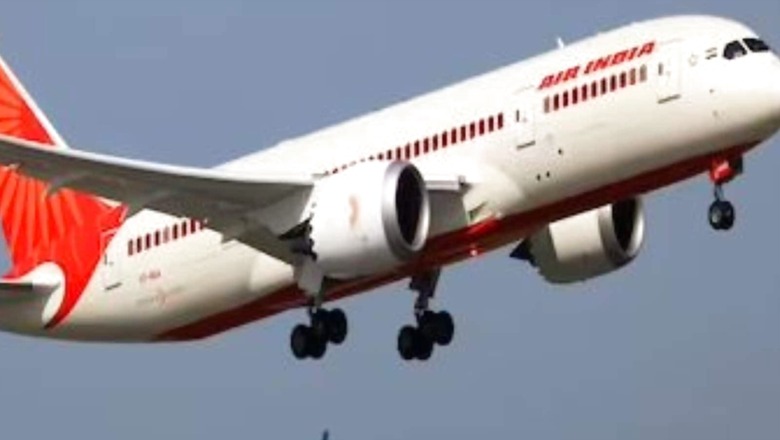
views
This year’s Valentine’s Day was memorable for the Tata group-owned Air India. It announced a ‘historic’ deal of ordering 470 aircraft in global aviation history along with its forthcoming relationships with Boeing and Airbus.
India’s Prime Minister Narendra Modi was quick to congratulate the former PSU on Twitter. However, he was not alone in this wish-giving. USA’s President Joe Biden, UK’s Prime Minister Rishi Sunak, and French President Emmanuel Macron joined him as the contract included an American company Boeing, an English company Rolls Royce, and a French company Safran. Biden, as per news reports, stated that the deal would give employment to one million Americans across 44 states, in the wake of facing attacks from Republicans over the rising unemployment rate.
The much-abused Dhandho, a Gujarati colloquial for ‘endeavours to create wealth’, is back on track to decide essential policies, including foreign policy, rather than just staying limited to the trade policy.
In foreign policy studies, ‘high foreign policy’ would often mean a policy where the survival of the state, i.e. national security, is prominent, whereas ‘low foreign policy’ would often mean a policy where economic and cultural prosperity matter.
Richard Cooper, an American economist and a former Under Secretary of State for Economic Growth, Energy, and the Environment, wrote a classic essay titled “Trade Policy is a Foreign Policy.” In this essay, he talked about how the trade policy was a part of ‘high foreign policy’ for a very long period in history, which then got changed due to the then-ongoing Cold War, where political and ideological alliances started dominating.
As the Cold War era is over, followed by the era of the unipolar world, this is the time when economic realism and pragmatism have already started dominating the course of international relations. India, which opened its economy post-1991 reforms, now has a government which is interested in encouraging enterprise, infrastructure development, and local manufacturing. With a demographic dividend also on the side, India and India Inc., are all set to leverage the gain–and now Dhandho will be a part of high foreign policy.
In post-liberalised India, IT companies were the first ones to leverage this gain in their favour. They invested in European and American countries, set up development centres, collaborated with foreign companies, and supported local communities by hiring. In the last five years, Tata Consultancy Services (TCS) has hired over 21000 American employees in the US, making itself one of the top recruiters. Other Indian firms have also done this.
When it comes to automobile companies, Suzuki and Honda invested heavily in India, which made technology sharing possible between the two countries. This gave India and Japan a common platform to bring them closer on the issues of trade and investment. Tata Motors has been exporting cars to the African market, which made it possible for India to engage with them.
Defence and infra companies are not much behind. In other news of this week, Armenia, a Caucasus country in conflict with Azerbaijan, is pushing Indian companies to build infrastructure in conflict-torn areas to provide mobility. India’s defence equipments have already reached the South China Sea via ASEAN (Association of Southeast Asian Nations) countries.
When the I2U2’s (India, Israel, the UAE, and the US) first summit was organised, this author, in a column for this publication, advocated the new forming by saying the world has started realising economic pragmatism. Further business deals and expansion of India Inc. across the globe reaffirm that stand. Dhandho has become a part of ‘high foreign policy.’
Harshil Mehta is an analyst who writes on international relations, diplomacy, and national issues. Views expressed are personal.
Read all the Latest Opinions here




















Comments
0 comment